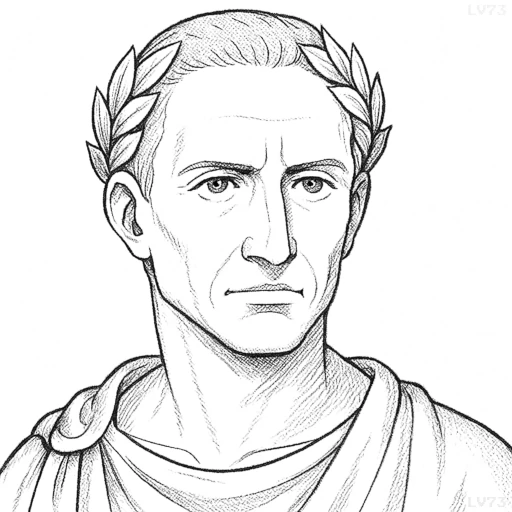“During a few days’ halt near Vesontio for the provision of corn and other supplies, a panic arose from inquiries made by our troops and remarks uttered by Gauls and traders, who affirmed that the Germans were men of a mighty frame and an incredible valour and skill at arms.”

July 12, 100 BC – March 15, 44 BC
Roman
Military General, Statesman, Dictator of the Roman Republic, Author
table of contents
Quote
“During a few days’ halt near Vesontio for the provision of corn and other supplies, a panic arose from inquiries made by our troops and remarks uttered by Gauls and traders, who affirmed that the Germans were men of a mighty frame and an incredible valour and skill at arms.”
Explanation
In this quote, Julius Caesar recounts a moment from his Gallic Wars, describing how fear and rumor spread rapidly among his troops during a pause near Vesontio (modern-day Besançon). The panic was not caused by direct contact with the enemy, but rather by inflammatory reports from Gauls and traders describing the Germanic tribes as physically imposing and exceptionally brave. This passage highlights Caesar’s awareness of the psychological dimension of warfare, where perception and morale can shift dramatically due to hearsay and uncertainty.
Caesar’s purpose in documenting this episode was likely twofold: first, to demonstrate his leadership under pressure, and second, to reveal how easily troop morale can be shaken by external influences. His commentary exposes how armies—especially those unfamiliar with their opponents—can be destabilized by exaggerated reputations or cultural myths. Caesar would go on to resolve this panic through speeches and strict discipline, reaffirming his ability to restore confidence through command presence and rhetorical skill.
In modern contexts, this quote illustrates how fear can spread even in the absence of direct threat, driven by rumors, secondhand reports, or media narratives. It applies not only to military settings but also to markets, public health, and crisis management. Caesar’s account reminds us that managing perception and controlling misinformation are just as vital to leadership as tactical skill—an enduring lesson from ancient battlefields to contemporary challenges.
Would you like to share your impressions or related stories about this quote in the comments section?


